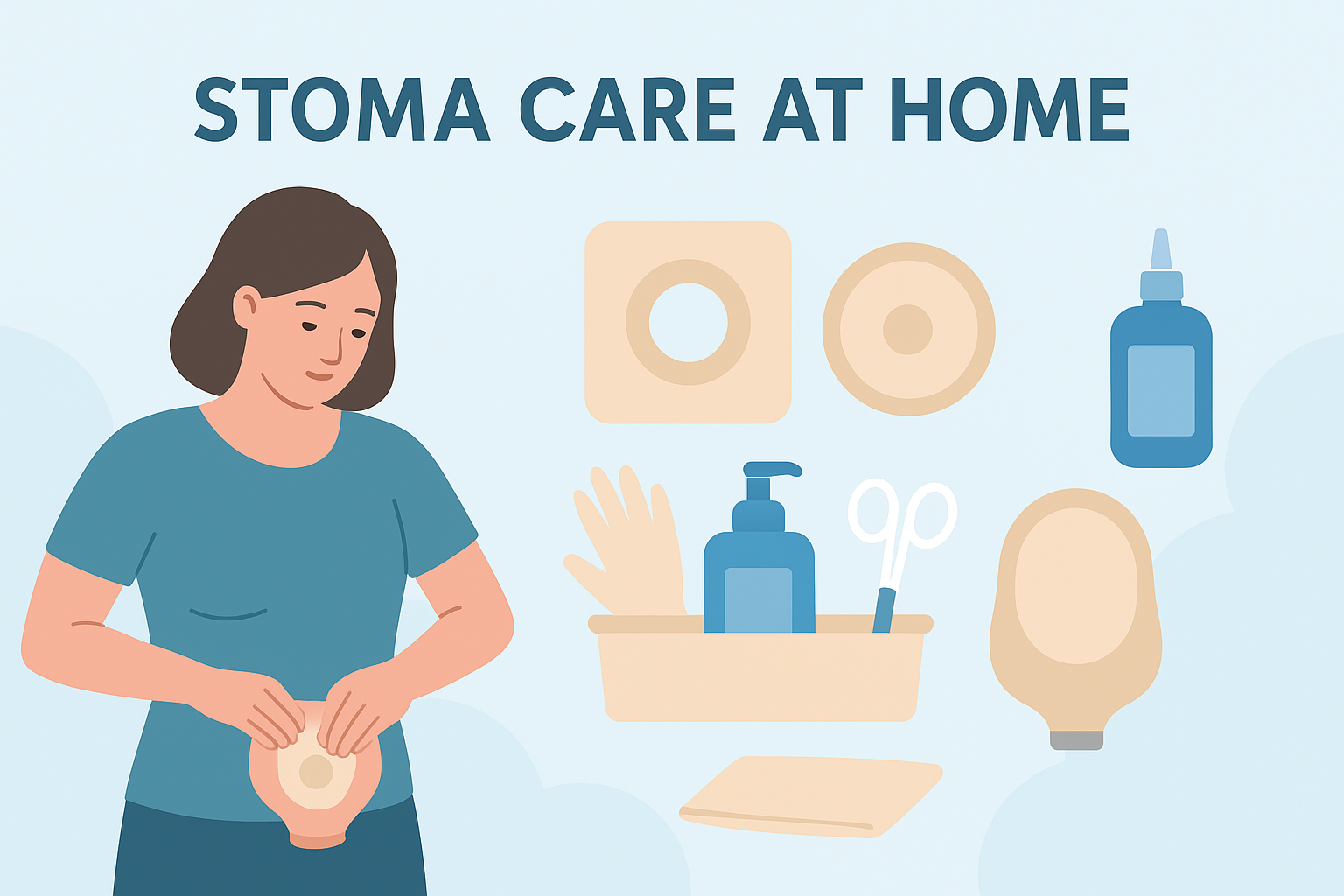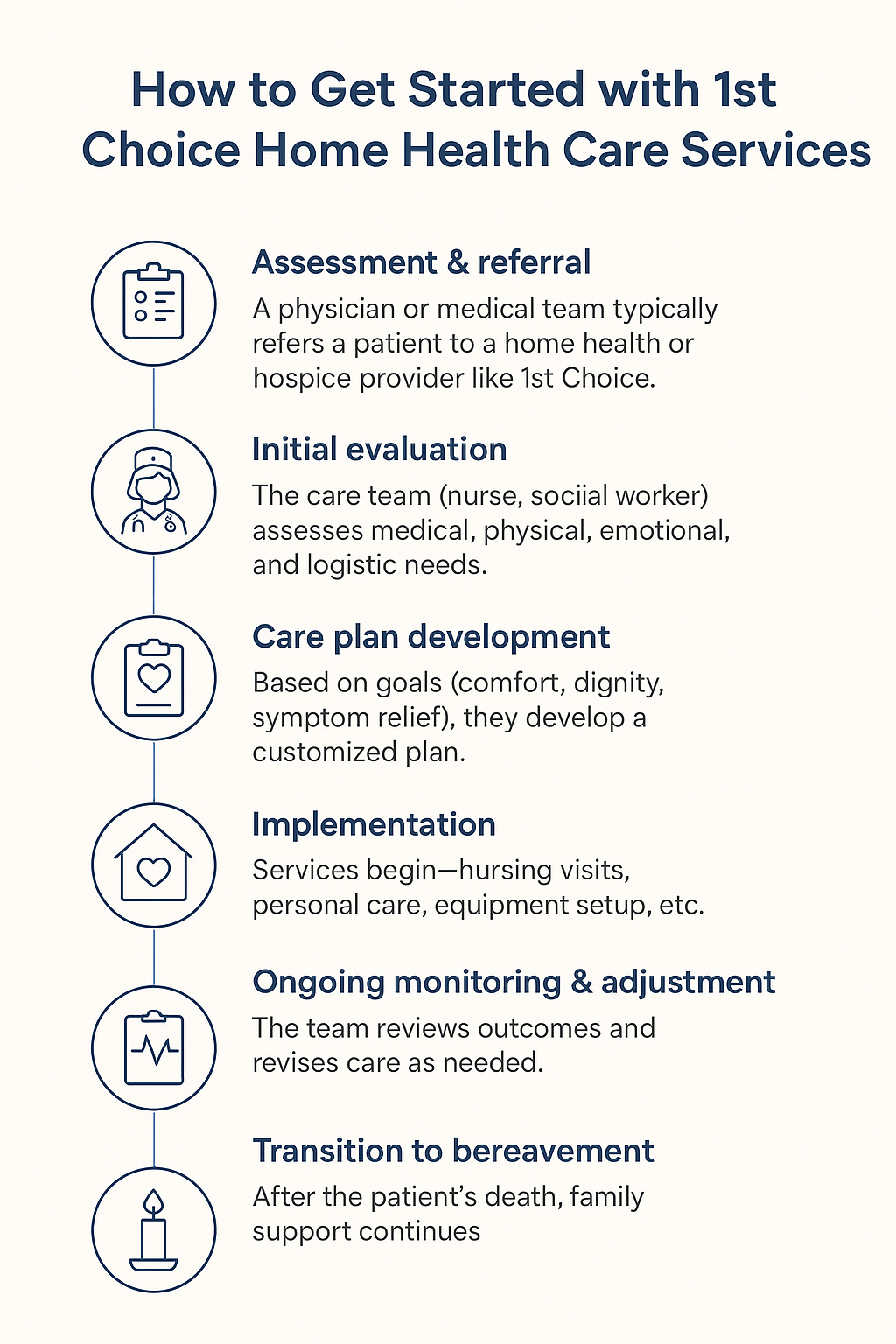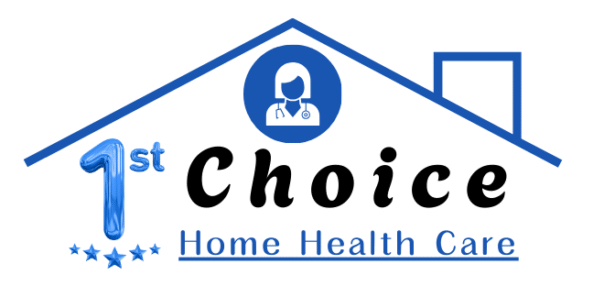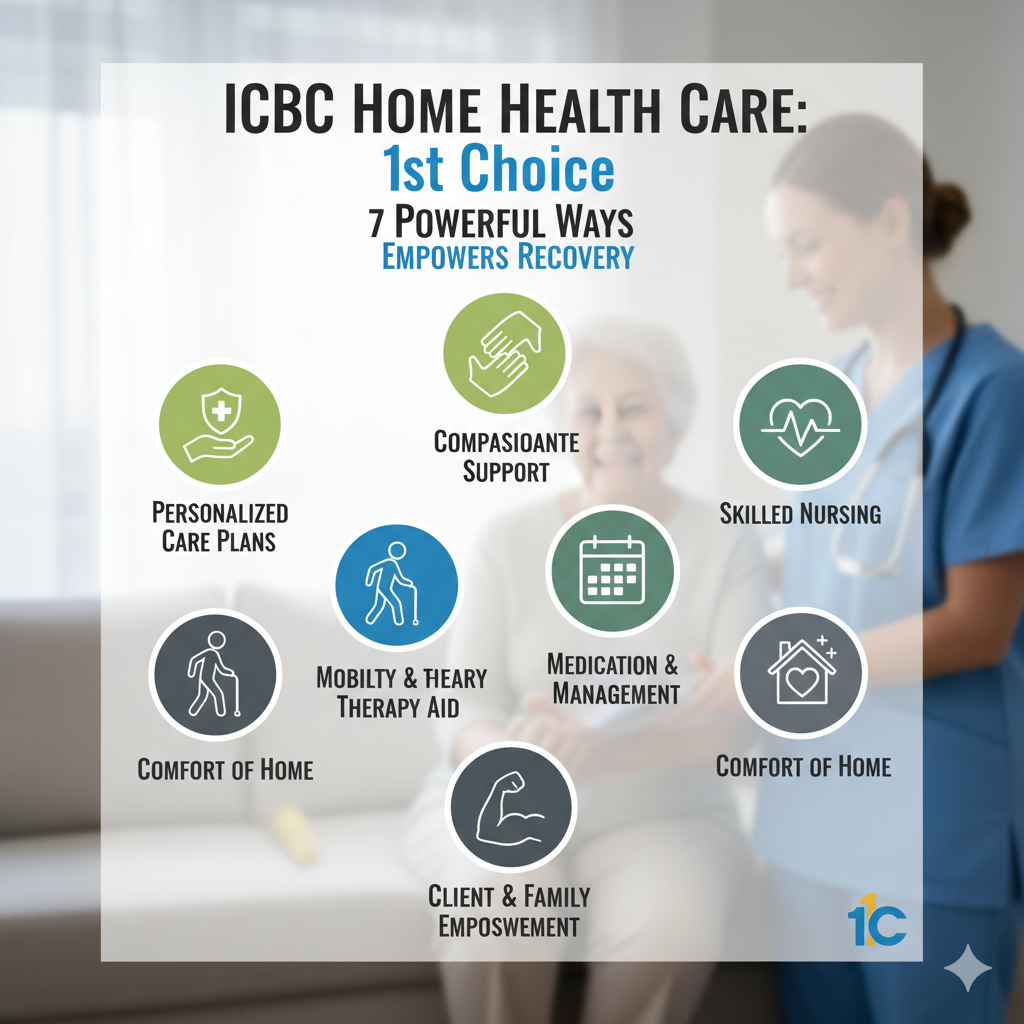
5 Ways We Help With End of Life Care
1st Choice Home Health Care Services: 5 Ways We Help With End of Life Care
1st Choice Home Health Care Services supports families and patients through end of life care with compassion, medical expertise, and emotional support.
1. End of Life Care: What It Means & Why It Matters
End of life care refers to the support and medical care given during the time surrounding death. It is not just about the last hours—it may cover days, weeks, or even months, depending on the illness trajectory.
The goal of end of life care is to maximize quality of life, reduce suffering, and provide dignity, rather than focusing solely on curing disease.
When provided in the home, end of life care often helps patients stay in familiar surroundings, surrounded by loved ones, which many people prefer over institutional settings.
Providing effective end of life care requires addressing physical, emotional, spiritual, and practical needs simultaneously.
2. What Is 1st Choice Home Health Care Services?
“1st Choice Home Health Care Services” is a provider that offers home health, hospice, and supportive services to patients in need of medical and non-medical care at home.
Their services typically include skilled nursing, therapy (physical, occupational, speech), home aides, social work, companion care, and hospice / end of life support.
In their hospice / end of life arm, they provide comfort care, symptom management, and support to both patients and families during the final phase of life.
3. Why Choose Home-based End of Life Care?
Choosing to receive end of life care at home has several advantages:
Comfort & familiarity: Patients tend to feel more relaxed when surrounded by their own belongings, routines, and family.
Family presence: Loved ones can visit freely, maintain closeness, and participate in care.
Reduced disruption: Avoids frequent hospital or facility transfers in a fragile state.
Holistic support: Home care providers tend to emphasize comfort, dignity, and quality of life.
Continuity: The same caregivers or team can maintain care over time, building trust and understanding.
However, home care also brings challenges: logistic and equipment needs, caregiver burden, and the emotional intensity of caring at home.
3. Why Choose Home-based End of Life Care?
Choosing to receive end of life care at home has several advantages:
Comfort & familiarity: Patients tend to feel more relaxed when surrounded by their own belongings, routines, and family.
Family presence: Loved ones can visit freely, maintain closeness, and participate in care.
Reduced disruption: Avoids frequent hospital or facility transfers in a fragile state.
Holistic support: Home care providers tend to emphasize comfort, dignity, and quality of life.
Continuity: The same caregivers or team can maintain care over time, building trust and understanding.
However, home care also brings challenges: logistic and equipment needs, caregiver burden, and the emotional intensity of caring at home.
4. How 1st Choice Home Health Care Services Will Help
Here are 5 key ways 1st Choice can support someone receiving end of life care at home:
Medical & Symptom Management
One of the primary roles is managing symptoms and ensuring comfort. This includes:
Pain control and medication management
Monitoring and treating complications (e.g. infections, breathing issues)
Administering injections, IVs, or other treatments
Managing side effects, nausea, or other distressing symptoms
Because they offer skilled nursing and therapy, they can adapt care to changing needs.
Personal Care & Comfort
Many patients need hands-on care in daily tasks. 1st Choice can provide:
Help with bathing, grooming, toileting
Assistance with positioning, turning, transfers (to prevent pressure sores)
Feeding help (if needed)
Maintaining cleanliness, hygiene, and comfort
This frees family caregivers from the most physically demanding tasks, improving quality for everyone.
Emotional, Spiritual & Psychosocial Support
End of life is as much emotional and spiritual as it is physical. 1st Choice can help by:
Providing counseling or social work support to patients and family
Chaplain / spiritual care (depending on organization)
Facilitating conversations about goals, wishes, advance directives
Offering emotional presence, listening, grief support
This kind of support helps ease fear, regret, and conflict during a difficult time.
Coordination & Care Planning
Complex care at end of life often involves many pieces. 1st Choice can:
Coordinate between physicians, hospital, specialists, labs
Develop and adapt a care plan tailored to patient goals
Arrange necessary medical equipment (hospital bed, oxygen, mobility aids)
Ensure medications, supplies, and logistics are in place
Monitor progress and adjust interventions proactively
This “behind-the-scenes” care is critical: it prevents breakdowns, confusion, and gaps at vulnerable moments.
Bereavement & Family Support After Death
Care doesn’t stop at death. 1st Choice may also provide:
Bereavement counseling or support groups for the family
Guidance with end of life procedures (death certification, funeral preparation)
Follow-up and emotional support as loved ones adjust
Many hospice / end of life providers offer grief support up to 13 months after passing.
5. Challenges & Things to Watch For
While home end of life care has many benefits, there are challenges:
Caregiver burden: Family caregivers may feel overwhelmed or exhausted.
Physical demands: Lifting, turning, night care—all demanding.
Cost & insurance: In some regions, not all services may be fully covered.
Access to emergency support: Sometimes hospital care might be necessary.
Communication breakdowns: Misaligned expectations or unclear advance directives can cause stress.
Medical complexity: Rapid changes in condition require vigilance.
To mitigate risks, it’s essential to have a clear care plan, open communication, proper training, respite support, and contingency plans.



